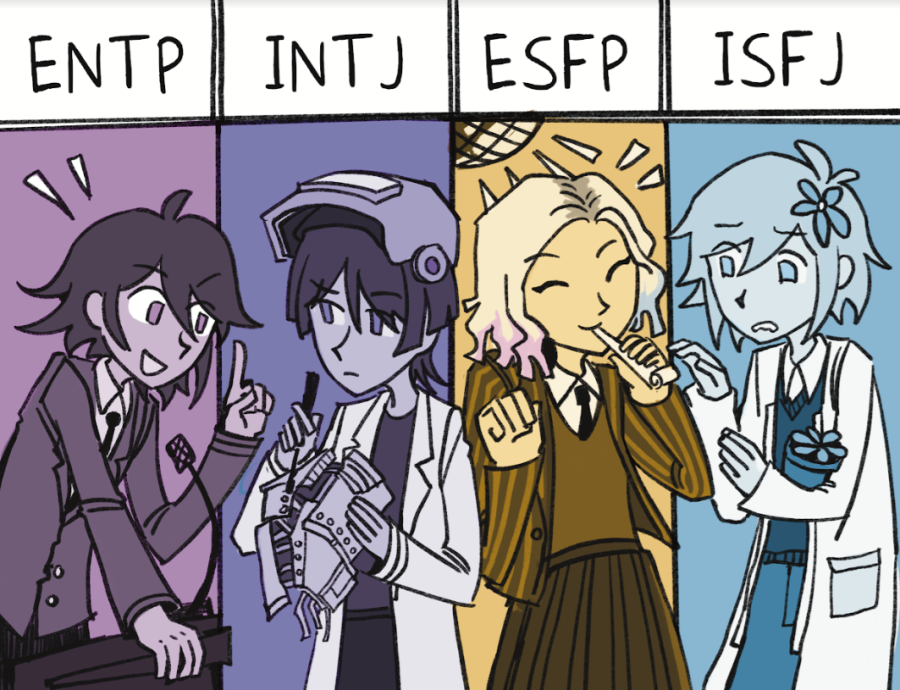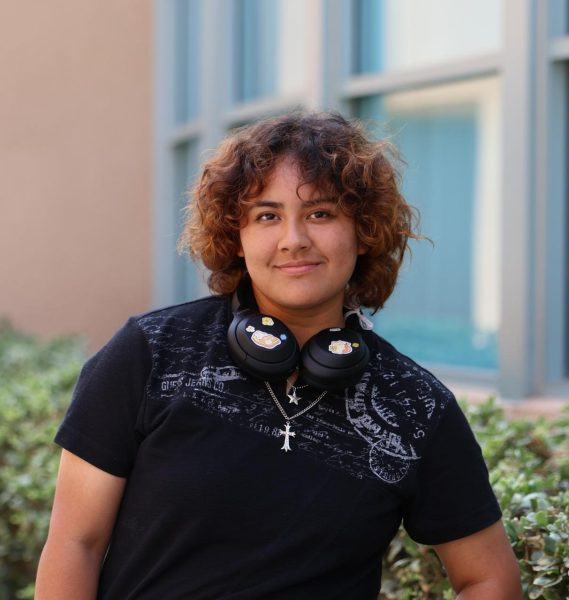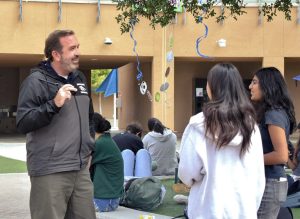Personality tests fail to get personal
WHAT PERSONALITY TYPE ARE YOU?: Despite their popularity, four letters are not the end all be all.
December 9, 2022
Are you the human embodiment of a golden retriever with the attention span of a goldfish? Your MBTI type is ENFP! Would you rather spend time with your computers and robots than socialize. You’re an INTP. Angelic mom-friend with an inability to say no? A classic ISFJ—all according to stereotypes, that is.
Myers-Briggs Type Indicator, more commonly known as MBTI, is a method of psychological typology developed by the Swiss psychiatrist Carl Jung in 1921 and popularized by Katharine Cook Briggs and her daughter Isabel Briggs Myers. Essentially, it’s a personality test backed by psychological research—however, there are only so many ways to sort the 8 billion people on Earth into categories before becoming constrictive.
The method types people into 16 different archetypes based on their direction of energy (introversion vs. extroversion), ways of perceiving information (senses vs. intuition), decision making (thinking vs. feeling) and structure (perceiving vs. judging). The combination of these four preferences make a four-letter code. For example, someone who is extroverted and tends to sense, feel and perceive can consider themselves to be an ESFP type.
“For my practice as an educational consultant, the way that we use the MBTI is to better understand the student,” certified MBTI practitioner and college consulting office president Jenny Wheatley said. “When we’re coaching the student, it’s aligned to something that they’re feeling comfortable about.”
The MBTI has also taken the internet by storm. Memes about the dynamics between certain types of personalities and fans’ analyses of their favorite characters and celebrities’ MBTI types have been liked thousands of times.
However, in its rise in popularity, it has also fallen victim to the human tendency to categorize people into boxes.
“I think that’s the wrong way of looking at MBTI,” Wheatley said. “I think in any sort of instrument, there is definite room for people to misinterpret. You’ll witness that because the MBTI only has 16 types, and because you are kind of forced into one of those 16 types, people take it and misinterpret it and create stereotypes around certain types of MBTI.”
Simplified online versions of the official MBTI instrument such as the 16Personalities questionnaire have widely led to misinterpretations of MBTI types and Jung’s theory. In fact, even though it uses the same four-letter sorting system, 16Personalities calls their test the NERIS Type Explorer due to copyright issues.
“I didn’t know that 16Personalities isn’t actually MBTI,” sophomore Fatima Alkhafaf said. “It’s always the first website that pops when you search for MBTI tests. And they make it super easy and quick, even though it’s not accurate.”
In addition, most online tests are self-administered, but the official Myers & Briggs Foundation states that the official MBTI assessment should be administered “most often through a certified individual who has met certain professional requirements for interpreting the results of the instrument.” Without the objective eyes of an expert, results can get swayed by an endless number of outside factors, such as misinterpretation of the questions, bias or mood.
Rather than online personality tests that are more than likely to give mistyped responses, the original Myers-Briggs model and Jung’s theory should be popularized. Knowing your correct MBTI type, and the reasoning behind it, can help personal growth without stereotyping others or getting stereotyped—you’ll be able to pull out an explanation why being introverted does NOT mean you don’t want to get invited places, thank you very much.



![AAAAAND ANOTHER THING: [CENSORED] [REDACTED] [BABY SCREAMING] [SIRENS] [SILENCE].](https://thehowleronline.org/wp-content/uploads/2025/06/lucy-1200x800.jpg)






















































![AAAAAND ANOTHER THING: [CENSORED] [REDACTED] [BABY SCREAMING] [SIRENS] [SILENCE].](https://thehowleronline.org/wp-content/uploads/2025/06/lucy-300x200.jpg)